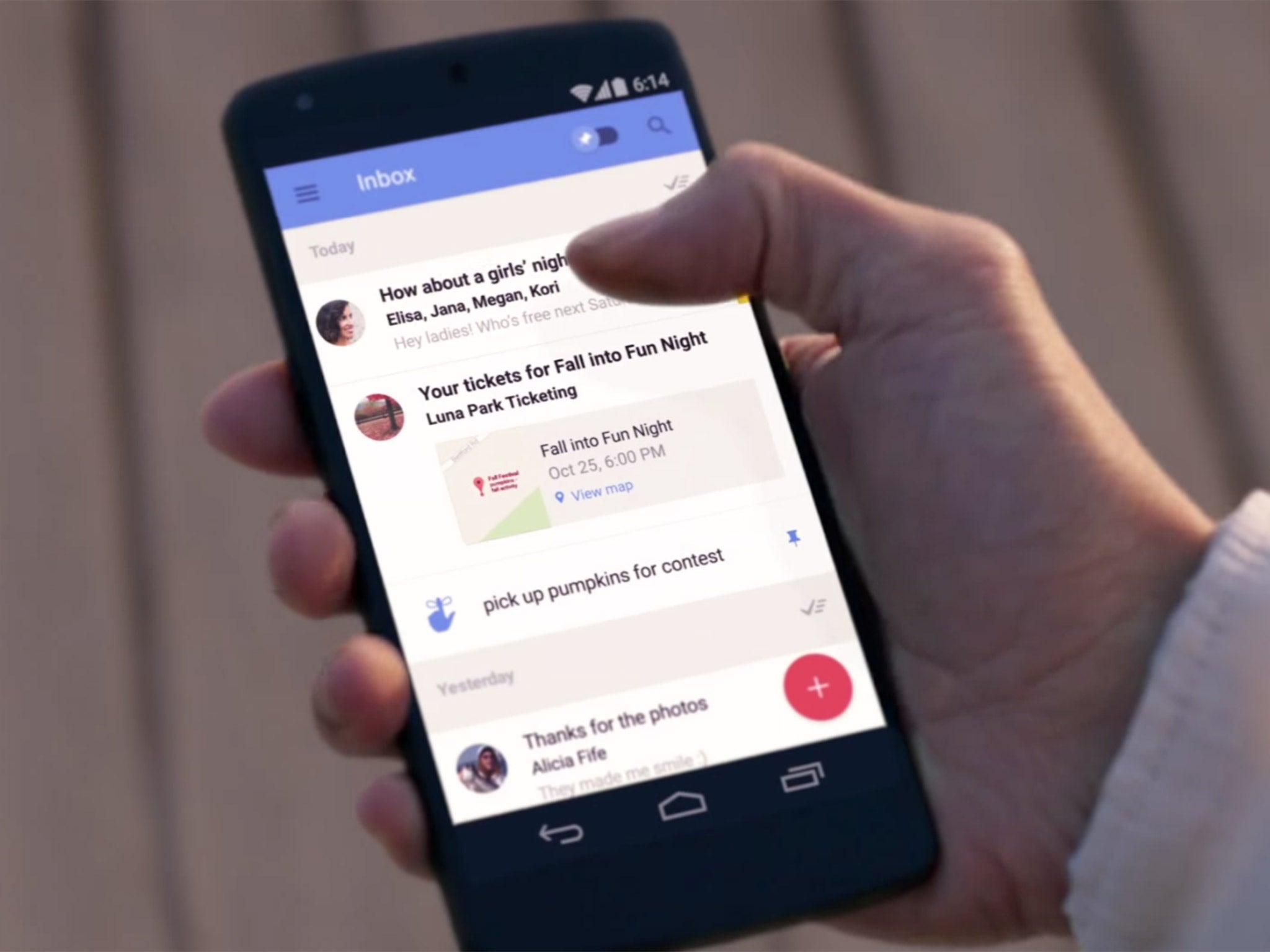We don't love email, despite what Google claims about its new service, Inbox

After spending a day wading through tedious missives, filing electronic receipts and deleting invasive corporate greetings, it's easy to come to the conclusion that the system of email is broken. We know that some emails are significantly less important than others, but they all arrive with equal status, holding their heads high, whether it's a work opportunity, a retweet notification or a confirmation of an order for a takeaway curry.
Dealing with all this is an annoying chore, but we each find our own slightly inadequate ways of doing so. We muddle through, stoically. Over the years, many products have claimed to offer some kind of fix, but email is inherently problematic. Modern life has made it what it is, and I'd be suspicious of anyone who claims to have an email system that doesn't make them slightly irritated at least once a week.
Google has just unveiled a promotional video to advertise its new email service, Inbox. It's packed with typically aspirational images of immaculately presented people happily going about their daily business, and features the manifestly untrue statement "we love email". We don't love email; we're just duty bound to deal with it, and in that sense it ranks somewhere alongside belly button fluff on the list of our favourite things. But Inbox will, apparently, make us "love email" even more by presenting it in new ways that help us judge how important each message is. So similar emails (say, special offers, or travel details) will be quietly grouped into "Bundles", while anything deemed to be a life-or-death memo will nudge us a little harder when it arrives.
It's not the first time that Google has had a go at this. Its Gmail service has a Priority Inbox feature that shoves the good stuff up the top of the page and keeps the more inconsequential down the bottom. It also has tabs, which can divert yawnsome emails relating to social media or promotions to a different page. But Inbox has something of the spirit of Google Now about it, the Google service which learns from your actions and makes you think "Blimey, how did it know that?"
If any company is going to correctly guess which emails are important to us, it's Google, but there's something rather troubling about delegating this kind of decision to computer software. For example, I frequently have to pick out misfiled emails from my Spam folder, simply because interesting stuff can sometimes masquerade as dross. Google doesn't always get it right. A prioritised email system that you can't rely on 100 per cent merely replaces email overload with an anxiety that you might have missed something – and frankly, for most of us, the supposed "problem" of email is not so colossal that we need that much hand-holding.
Nevertheless, Google has successfully created a buzz around Inbox by launching it as invite only, leading to the inevitable pursuit of invites at inflated prices on eBay. It hasn't been around long enough for us to judge whether it significantly lessens our email burden, but it does have two nice features that are most welcome: the ability to "snooze" an email and have it pop up at a particular time – effectively turning it into a reminder – and "pinning" emails into a kind of to-do list. As someone who finds himself setting alarms and forwarding emails as memory joggers, it's great to be offered a solution that might actually make my life easier. It might even make me less contemptuous of email. But I'm not sure that I'll ever love it.
Join our commenting forum
Join thought-provoking conversations, follow other Independent readers and see their replies
Comments
Bookmark popover
Removed from bookmarks